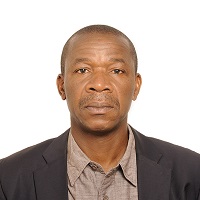Economics seminar series: Balancing investment, consumption and employment in Tanzania
- Dates
- Tuesday, October 29, 2024 - 14:00 to 15:30
-
Location
- Online and in-person, Wilson B Room 5, Walton Hall, Milton Keynes
Tanzania is presently in the process of formulating its Development Vision 2050 – its development strategy for the next 25 years. Tanzania Vision 2025 formulated in the late 1990s envisaged that the country should reach middle-income status by 2025 to be achieved through a process characterised by high and sustained GDP growth, poverty reduction and rapid socio-economic transformation. The three successive Five-Year Development Plans (FYDP) in the last 15 years sought to force the pace of development by rapidly stepping up the rate of investment in the economy. Development planning centred on investment planning, mostly involving ambitious large projects with long gestation periods. Domestic resource mobilization by raising the rate of savings was seen as the binding constraint on the pace of development. Implicit in this strategy was the perceived need for tightening the belt on consumption during the phase of rapid socioeconomic transformation.
Population growth in Tanzania was high but variable during this period: around 2.8% in 2005 to 2.5% in 2009, then accelerating significantly to a maximum of nearly 3.5% in 2016, and subsequent declining to around 3% at the start of the 2020s. From 2025 onwards, therefore, labour force growth will first accelerate as a result of the peak in population growth in the 2010s and then decelerate a bit while still remaining very high thereafter. The biggest economic challenge that Tanzania will face during the next 25 years, therefore is how to leverage its rapidly growing labour force for socio-economic development.
My argument is that the premise of promoting economic growth by tightening the belt on consumption is problematic in an economy characterised by extensive surplus labour and rapid growth of its labour force. The role of consumption in the process of industrialisation is intimately linked with the question of absorbing labour in the economy. Employment growth must go hand in hand with the growth of consumption, and particularly with the growth in production of consumer goods consumed by the labour force (wage goods).
Planning from a long-term perspective, therefore, cannot just solely focus on setting a high target rate of growth and a high pace of investment without considering how the planned patterns of investment enable or constrain the trajectory of growth in employment and the production of wage goods over the planning horizon.
At present, planning in Tanzania makes little or no use of input-output and consumption multiplier analysis to investigate the repercussion of a high pace of investment on the economy. My argument is that multiplier analysis matters, not only as a tool of short run planning, but also within a long run perspective because the smooth operation of multipliers in the future without hitting capacity constraints depends on whether the future expansion of consumption and employment remain in tune with the pace and the patterns of investment today.
Speakers

Marc Wuyts (Presenter)
Marc Wuyts is emeritus professor in Quantitative Applied Economics at the International institute of Social Studies of Erasmus University of Rotterdam. He has a long term affiliation with The Open University in teaching and research. He worked in Tanzania and Mozambique. His interests in research focus mainly on the macroeconomics of development and on the application of exploratory data analysis in research. His ongoing research work seeks to address the linkages between investment, consumption and employment from a longer term perspective, particularly in the light of the present-day discussions in Tanzania in the process of developing Tanzania Vision 2050.

Daniel Masolwa (Discussant)
Daniel William Masolwa is an leading economist and statistician, currently serving as the Director of Economic Statistics at the National Bureau of Statistics (NBS), with experience in data management, quantitative and qualitative analysis skills. The NBS mission is to produce quality official statistics and services that meet the needs of national and international stakeholders for evidence-based planning and decision-making. Daniel has also served as a border member of the Tanzania Agricultural Development Bank since 2020, a Development Financia Institution whose mission is to facilitate development and support transformation of the agricultural sector by providing short, medium and long term finance to agricultural projects in Tanzania that promotes economic growth, food security and reduction of income poverty.
Request your prospectus
![]()
Explore our qualifications and courses by requesting one of our prospectuses today.